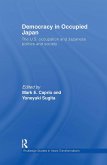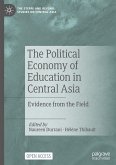This book documents Japan's psychological deterioration caused by its defeat in August 1945. Also, Japan's traumatic transformation from authoritarianism to democracy is detailed.
The study exposes an ideological war between the Soviet Union and the USA within American-occupied Japan, which triggered violent polarization among the Japanese. Under General MacArthur's tutorage, the defeated Japanese were expected to become a peace-loving people, but the Cold War derailed Japan's progress toward freedom and democracy. The "Red Purge," instituted by MacArthur's Headquarters (GHQ) from 1949 to 1950, triggered the devastating side effects on Japan's academic freedom and freedom of speech.
Stanford University Professor Dr. Walter C. Eells (1886-1962) served at the GHQ as an influential education adviser and became the most vocal advocate of the Red Purge. Japanese Marxist historians have constructed the popular postwar narrative of the Red Purge, blaming the GHQ for every failure.
The vast archival materials, including the GHQ papers, Eells papers, and Japanese-language documents, revealed that the Red Purge was a serious propaganda battle between the Americans and the Soviets in a war-torn Japan. This propaganda war engendered the violently polarized political climate, in which the conservative Japanese government behaved according to the dictates of US Cold War policy. By revealing feverish tensions within the GHQ regarding communist influences in Japanese universities, this study sheds bright new light on the Red Purge and its lasting impact on Japan's political future.
The study exposes an ideological war between the Soviet Union and the USA within American-occupied Japan, which triggered violent polarization among the Japanese. Under General MacArthur's tutorage, the defeated Japanese were expected to become a peace-loving people, but the Cold War derailed Japan's progress toward freedom and democracy. The "Red Purge," instituted by MacArthur's Headquarters (GHQ) from 1949 to 1950, triggered the devastating side effects on Japan's academic freedom and freedom of speech.
Stanford University Professor Dr. Walter C. Eells (1886-1962) served at the GHQ as an influential education adviser and became the most vocal advocate of the Red Purge. Japanese Marxist historians have constructed the popular postwar narrative of the Red Purge, blaming the GHQ for every failure.
The vast archival materials, including the GHQ papers, Eells papers, and Japanese-language documents, revealed that the Red Purge was a serious propaganda battle between the Americans and the Soviets in a war-torn Japan. This propaganda war engendered the violently polarized political climate, in which the conservative Japanese government behaved according to the dictates of US Cold War policy. By revealing feverish tensions within the GHQ regarding communist influences in Japanese universities, this study sheds bright new light on the Red Purge and its lasting impact on Japan's political future.








